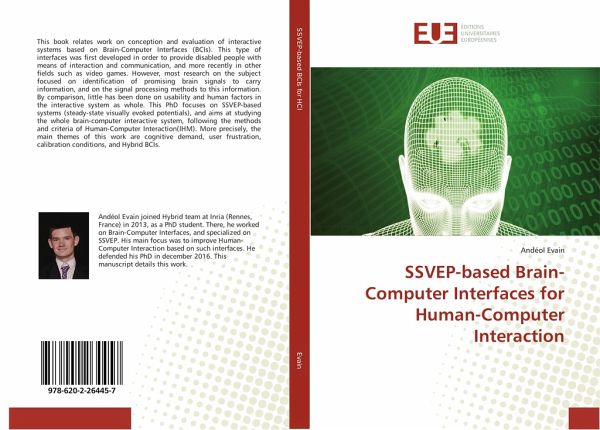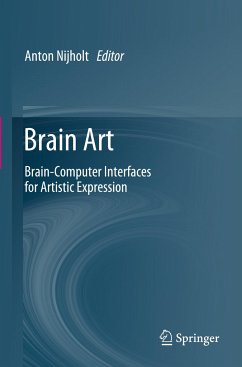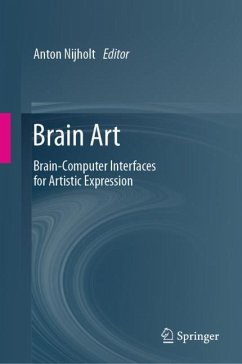
SSVEP-based Brain-Computer Interfaces for Human-Computer Interaction
Versandkostenfrei!
Versandfertig in 6-10 Tagen
43,99 €
inkl. MwSt.

PAYBACK Punkte
22 °P sammeln!
This book relates work on conception and evaluation of interactive systems based on Brain-Computer Interfaces (BCIs). This type of interfaces was first developed in order to provide disabled people with means of interaction and communication, and more recently in other fields such as video games. However, most research on the subject focused on identification of promising brain signals to carry information, and on the signal processing methods to this information. By comparison, little has been done on usability and human factors in the interactive system as whole. This PhD focuses on SSVEP-ba...
This book relates work on conception and evaluation of interactive systems based on Brain-Computer Interfaces (BCIs). This type of interfaces was first developed in order to provide disabled people with means of interaction and communication, and more recently in other fields such as video games. However, most research on the subject focused on identification of promising brain signals to carry information, and on the signal processing methods to this information. By comparison, little has been done on usability and human factors in the interactive system as whole. This PhD focuses on SSVEP-based systems (steady-state visually evoked potentials), and aims at studying the whole brain-computer interactive system, following the methods and criteria of Human-Computer Interaction(IHM). More precisely, the main themes of this work are cognitive demand, user frustration, calibration conditions, and Hybrid BCIs.












